Gil Schaenzle has always been a runner.
Even osteoporosis couldn’t stop the Evergreen, Colorado, resident from lacing up her running shoes.
So when she lost her 21-year-old daughter, Anna Rose, in March 2017 to adrenal cortical carcinoma — a rare form of neuroendocrine tumors known as NET cancer — she decided to go on a run.
But not just on any run; Schaenzle set out to run in 50 national parks in the lower 48 states.
She runs a minimum of 3 miles and up to 8 miles in each park. So far, she has 30 national parks under her belt and plans to finish her nine-month journey with a half marathon in Rocky Mountain National Park in August.
It has been an emotional and cathartic journey for Schaenzle, who will be 62 in September. It’s helped nurture her heart while raising awareness for this rare and often misdiagnosed disease. Patients go an average of five to seven years before proper diagnosis, according to the Healing NET Foundation.
GOOD spoke with Schaenzle about the impact of her national parks run tour. (The conversation has been edited for length and clarity.)
Where did you get the idea for this run?
I was recovering from two surgeries when Anna got sick. It’s pretty rough on a runner not to run, and I came up with the idea to run in all the national parks. Our family has always loved the national parks, and we’ve taken Anna to a lot of them.
One day, she was so sick. I snuggled with her and told her my plan. I asked her if she would drive the car and support me when she got better. She said, “No.” I was really hurt! When I asked her why, she said, “Because I’m going to run them all with you.”
There was this resolution in her voice. I didn’t doubt that she was going to get well and run with me. It was going to be our celebratory run.
Tell me about Anna and her diagnosis.
Anna was an amazing athlete and just the sweetest kid. She was playing volleyball at college and running, and she would pass out. Her heart wasn’t working right. Her legs weren’t working right. They would turn grey and go completely numb. I took her to a cardiologist, and he couldn’t figure it out. She also was seeing a vascular surgeon in Grand Junction, where she went to school. He called me one day in February 2016 and told me she had popliteal artery entrapment syndrome. He’s only seen one case, and he’s about to retire.
We took her to Johns Hopkins in Baltimore. When we came home, we thought the worst was behind us. Three days later, we found out she had cancer — stage 4 adrenal cortical carcinoma. She was 20 when she was diagnosed in July 2016. The cancer caused the popliteal artery entrapment syndrome and her heart condition. She’s the first documented case of popliteal artery entrapment syndrome being caused by cancer. It’s like one in a billion or more.
What is it about running that helps you grieve and heal?
Running used to help me find out how far I could go. Now, running is more about spending time with my girl. When I’m out running, she’s with me, and we talk. It’s my time with her.
There’s something that connects with our soul at a deep level when we’re out in nature. We push ourselves until you end up in this place of quiet solitude, discovery, and reflection. I think that’s a wonderful place to be.
What’s been the most interesting experience so far?
When I was in Pinnacles last month, I was at my campsite and I got up to get something from the tent. About halfway there, a bobcat started screaming and tore right in front of me! In Everglades, I was running down the road because I hadn’t gotten enough miles in. The ranger warned me that alligators were coming close to the road because there was still a lot of flooding from the hurricanes. And sure enough, I’m going down the road and a giant tail flips up in front of me. That was terrifying.
Why is this important now?
NET cancers aren’t obscure anymore. They’ve increased dramatically in the last five years, which is why there’s even more urgency to get the word out. You can go to the Healing NET Foundation website for more information. The CEO is a NET patient. She gets this more than anyone else. Anna’s surgeon, Dr. Eric Liu, is the chief medical officer, and he’s probably the foremost doctor in the country on NET cancers.
Be your own best advocate. If you see something in yourself, a friend, or neighbor that just doesn’t seem right, don’t sit on it. Explore it further. You may save somebody’s life.
You had made a promise to run with Anna, and you’re still doing it. What does it mean to you?
It means everything. I feel her with me all the time when I’m in the parks. I carry her teddy bear to every national park and take a picture of him in front of every official park sign. I know she’s happy because she always wanted to help other people with this cancer. I know she’s pleased with the efforts to bring awareness to NET cancer and help others who have it or may have it.
To join Schaenzle on her run or for more information, visit the Healing NET Foundation at https://www.thehealingnet.org/.













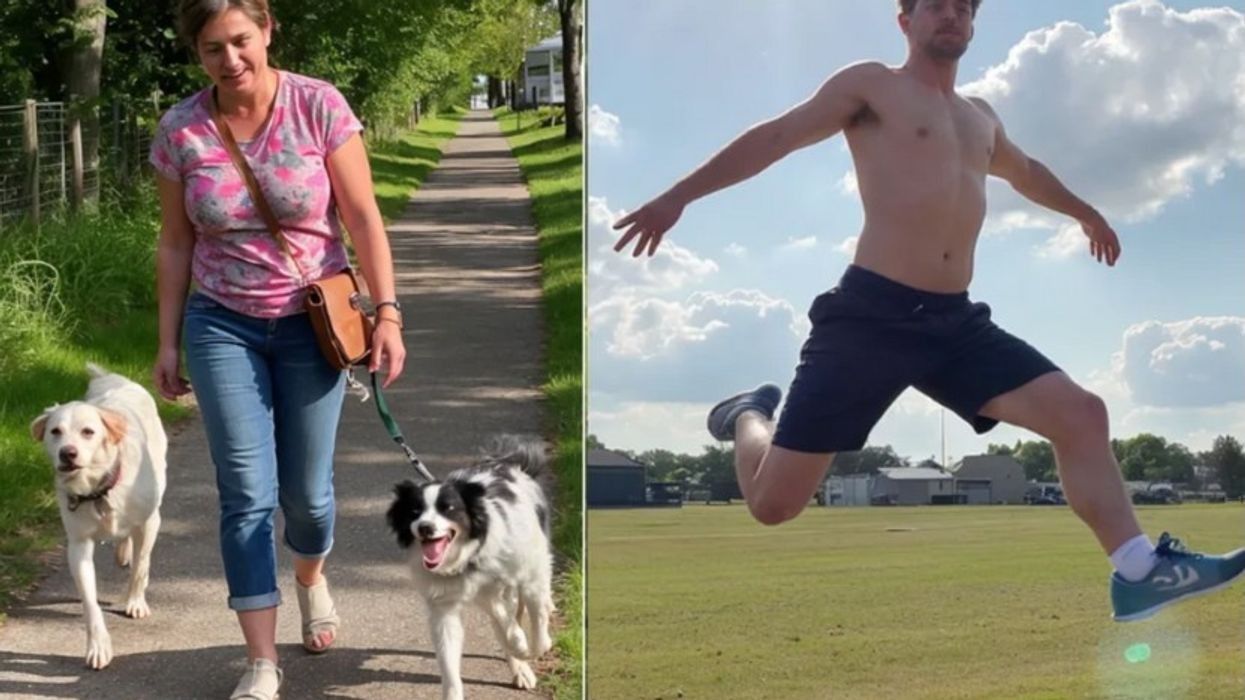

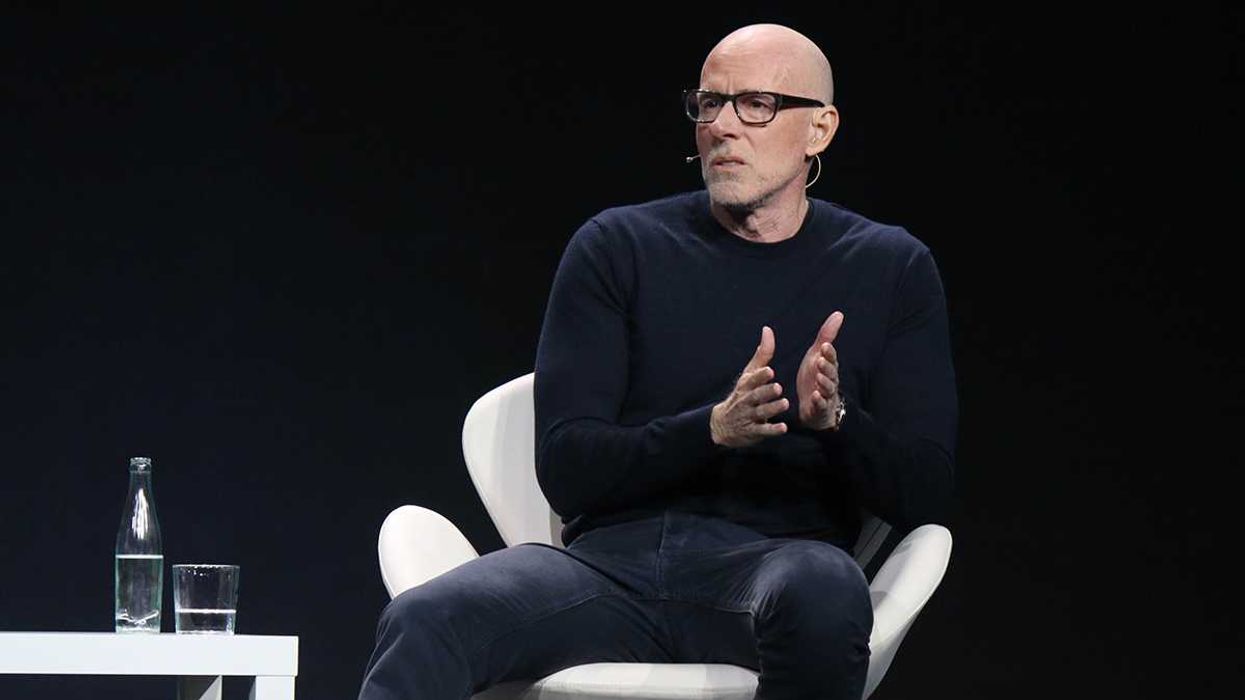
 Self reflection.Photo credit
Self reflection.Photo credit  Older woman touching hands with a younger self.Photo credit
Older woman touching hands with a younger self.Photo credit  Sign reads, "Regrets Behind You."Photo credit
Sign reads, "Regrets Behind You."Photo credit 
 Couple talking in the woods.
Couple talking in the woods.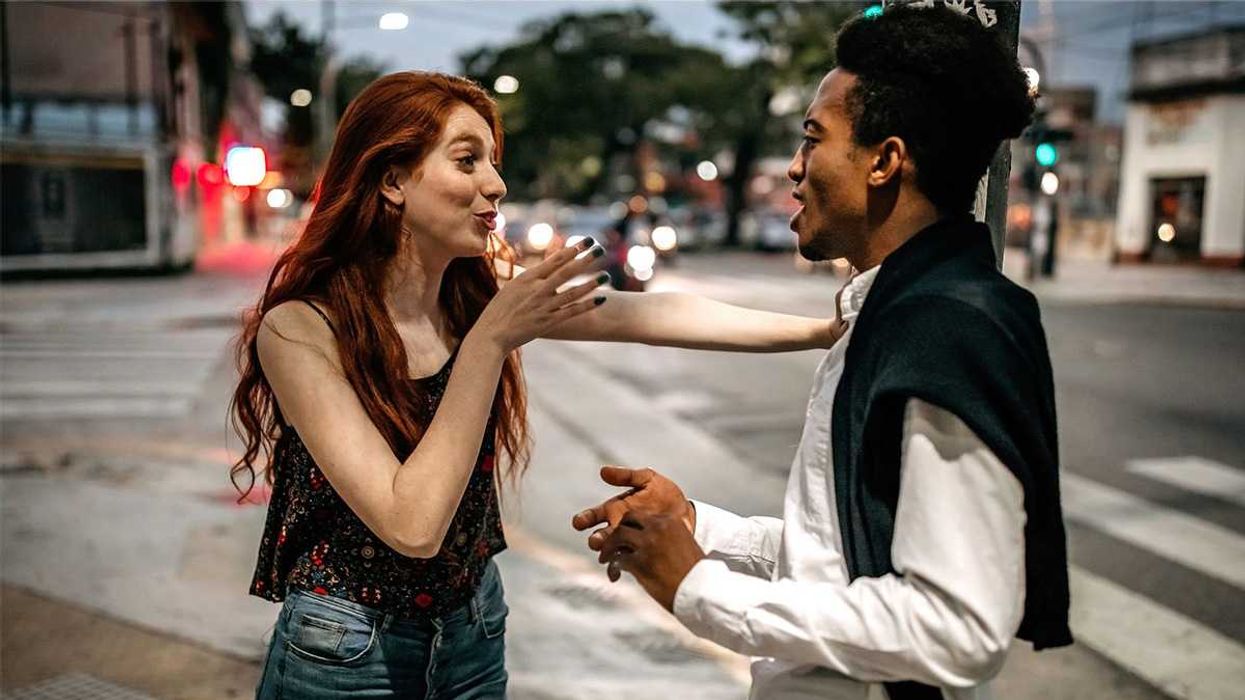 Woman and man have a conversation.
Woman and man have a conversation. A chat on the couch.
A chat on the couch. Two people high-five working out.
Two people high-five working out.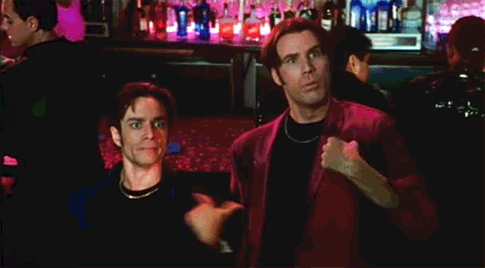 Movie scene from Night at the Roxbury.
Movie scene from Night at the Roxbury.  Friends laughing together.
Friends laughing together.
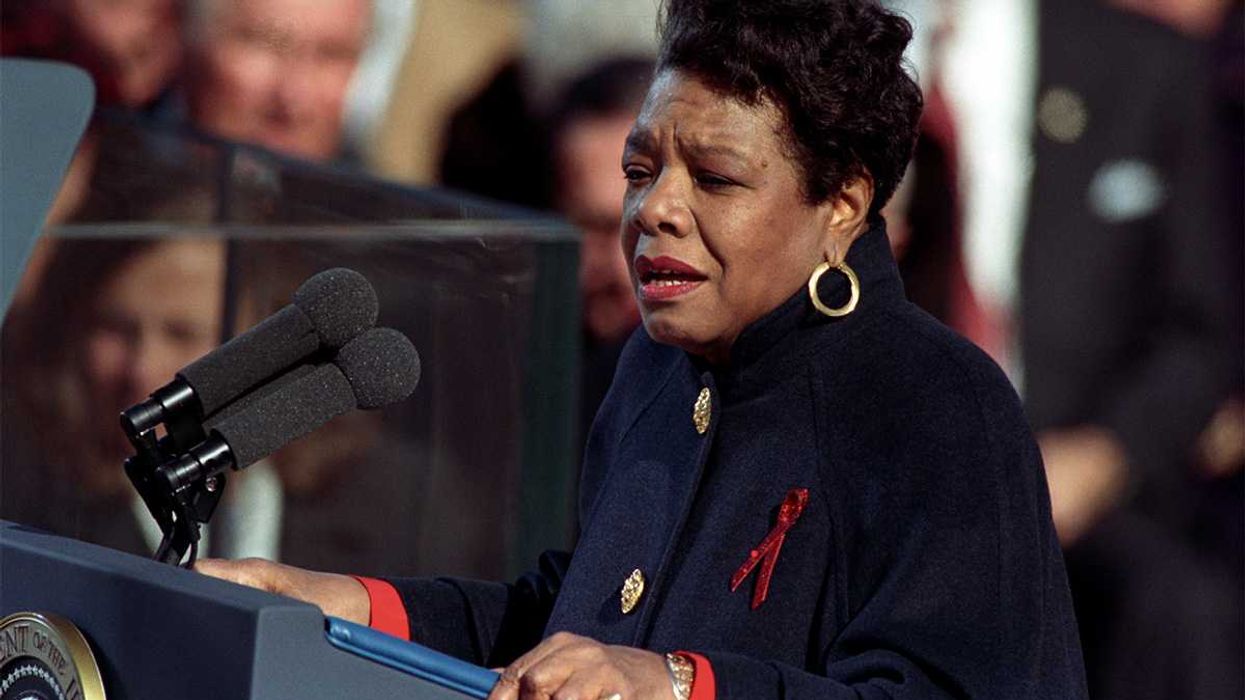 Maya Angelou reciting her poem "On the Pulse of Morning" at President Bill Clinton's inauguration in 1993.William J. Clinton Presidential Library/
Maya Angelou reciting her poem "On the Pulse of Morning" at President Bill Clinton's inauguration in 1993.William J. Clinton Presidential Library/ 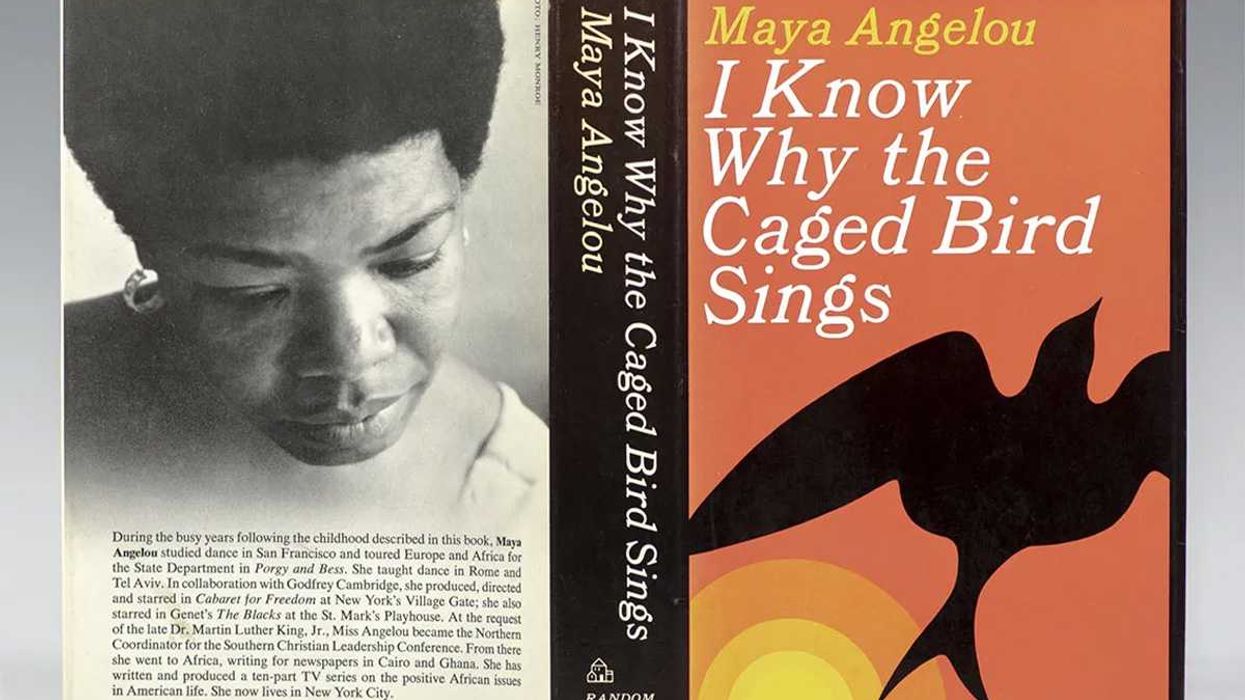 First edition front and back covers and spine of "I Know Why the Caged Bird Sings."Raptis Rare Books/
First edition front and back covers and spine of "I Know Why the Caged Bird Sings."Raptis Rare Books/ 

 Tow truck towing a car in its bedCanva
Tow truck towing a car in its bedCanva  Sad woman looks at her phoneCanva
Sad woman looks at her phoneCanva  A group of young people at a house partyCanva
A group of young people at a house partyCanva  Fed-up woman gif
Fed-up woman gif Police show up at a house party
Police show up at a house party 
 A trendy restaurant in the middle of the dayCanva
A trendy restaurant in the middle of the dayCanva A reserved table at a restaurantCanva
A reserved table at a restaurantCanva Gif of Tim Robinson asking "What?' via
Gif of Tim Robinson asking "What?' via 

 An octopus floating in the oceanCanva
An octopus floating in the oceanCanva